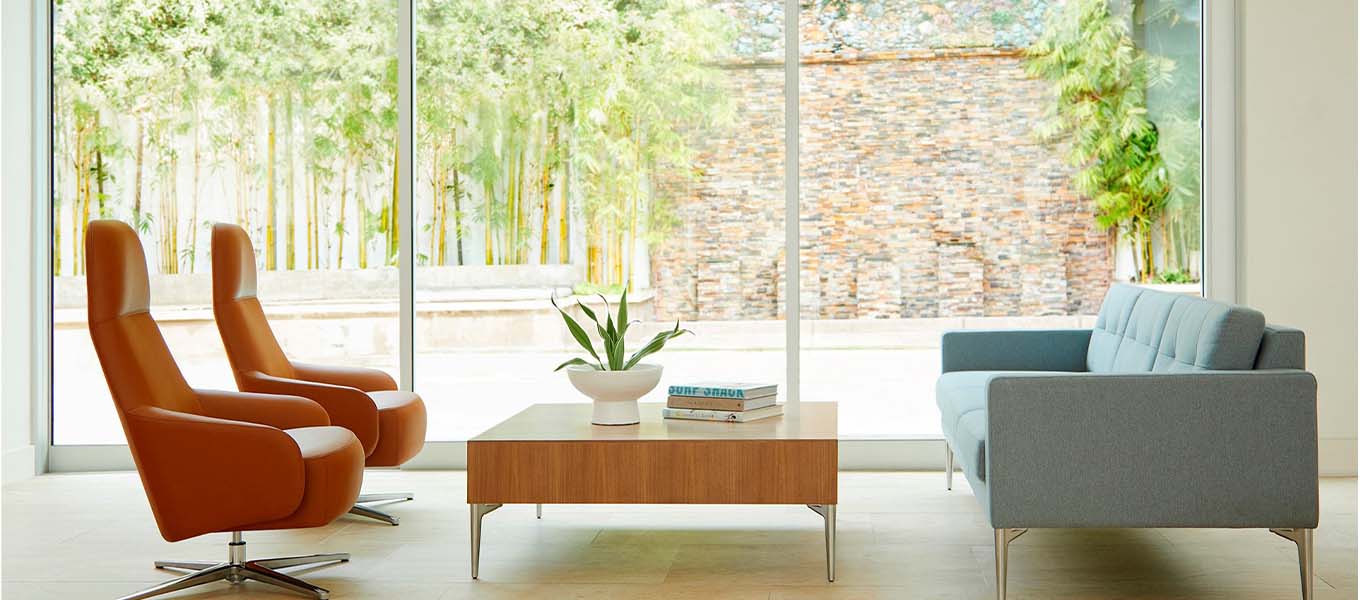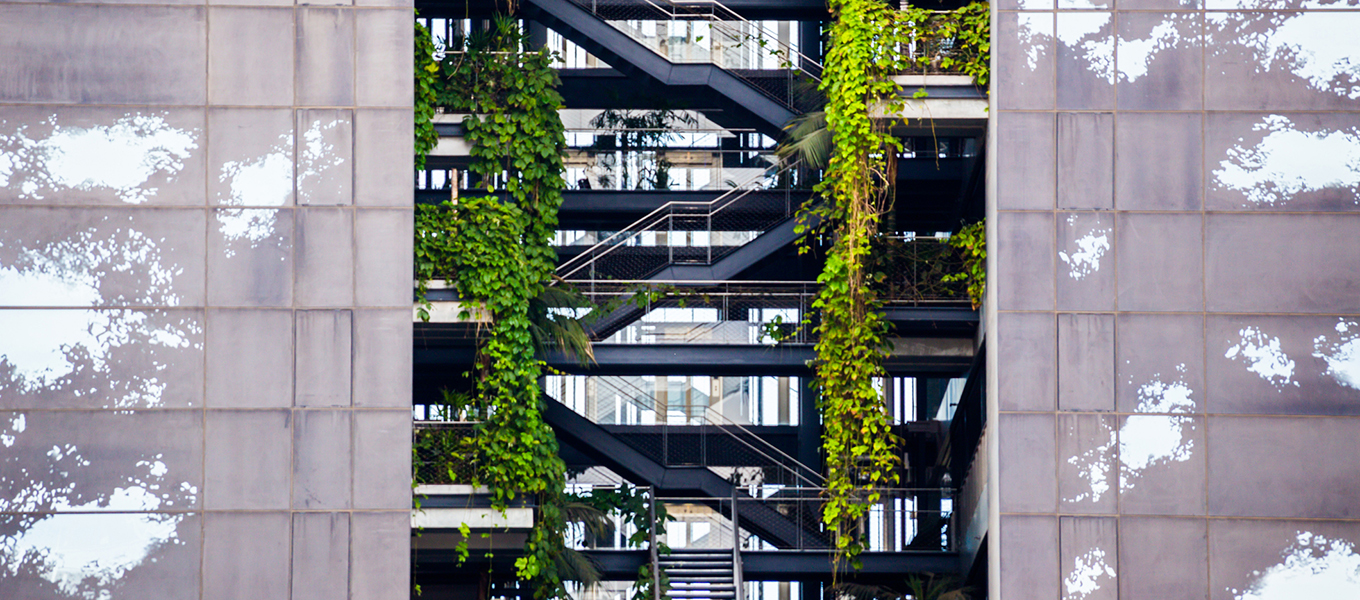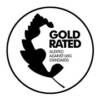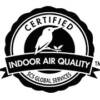Environmental Stewardship & Social Responsibility

Real leather is the earth-friendly choice.Timeless and enduring, genuine leather’s appeal is undeniable. It is also, when sourced from responsible suppliers such as Cortina Leathers, the most sustainable choice for environmental stewardship.
In every decision we make, Cortina Leathers considers the earth we all share. We continually evaluate and adjust our business approaches to ensure we are operating in a way that protects our environment and each other.
Circular by Nature. Sustainable by Design.
Leather is an Upcycled Product
100% of the hides Cortina sources and uses for upholstery leather manufacturing are a by-product of the food industry—not a single bovine is raised for its hide. Currently 30% of hides worldwide are not up-cycled into leather for use in upholstery, shoes, garments, accessories, etc., and are instead disposed of in landfills. Studies show that largescale landfilling of unused hides from the food industry is worse for the local environment long-term than modern processes used to tan and finish hides into leather.
Just as prehistoric humans hunted for meat but used the hides for shelter and clothing, we save this valuable material from the waste stream and produce a naturally beautiful, versatile, and incredibly durable and long-lasting product.
Leather Lasts and Lasts
The longevity of leather is unmatched by any other upholstery material due to its unique fiber configuration consisting entirely of natural protein fibers. Unlike synthetic materials, which are manufactured from petroleum-based plastics, leather retains its organic structure. Its dense, interwoven collagen fibers create a naturally strong yet flexible material that resists tearing and can withstand decades of use. This unique fiber configuration allows leather to breathe, regulate moisture, expand and contract with its environment, and last for decades with proper care.
In extremely demanding applications such as commercial aviation seating, leather lasts four to six times longer than any other textile including fabrics and faux "leathers" (like vinyl, polyurethane, and so-called vegan leathers), dramatically reducing the amount of upholstery material and re-upholstery expense needed over time. Considering this when specifying furniture can also help reduce the mass quantities of "fast furniture" added to our landfills.
Leather is Natural, Sustainable, and Safe
Up-cycled by humans for thousands of years, genuine leather is an organic, natural product that is biodegradable within 50 years. As long as the food industry exists, leather remains a sustainable, renewable resource and a key part of the circular economy.
Most people don't realize that the Chromium 3 used by responsible tanneries in modern large-scale leather manufacturing of chrome-tanned leather is NOT the carcinogenic Chromium 6 that was used pre-1970. Safe Chromium 3, once spent, is formed into non-toxic bricks that are rated for safe disposal in landfills, meeting strict EU REACH and US EPA regulations.
You can rest assured knowing that Cortina only sources hides from modern tanneries in countries committed to following the strictest regulations, and we offer both chrome and chrome-free leather.
The Holy Grail
While billions of dollars are currently being spent worldwide trying to create the "holy grail" of textiles, one that is 100% plant-based yet looks, feels, and performs like genuine leather (largely driven by the auto industry), no one has been able to manufacture this at the scale necessary for furniture upholstery. But it's coming!
At Cortina, we test new plant-based fabrics continuously as we work with partners from around the world to find the holy grail, and we look forward to offering it as soon as one meets our industry's and own environmental standards, yet also contributes positively to a circular economy, as does genuine leather.
Cortina Leathers Leads the Leather Industry in Sustainability
Cortina Leathers has consistently led the industry in making changes to reduce the environmental footprint of our finishing facility in Ohio, and we are continuously improving.
- We use only water-based, solvent-free chemicals which emit less than 10% of the permissible EPA VOC’s + HAPs,
- We use pre-trimmed hides to finish leather in our U.S. facility reducing carbon footprint up to 10%. See the full benefit explanation in blue.
- We pioneered the use of chrome-free leathers in the U.S.
- Scrap leather is sent to companies to produce small leather goods, eliminating leather waste.
- We offer return shipping for our sampling materials.
- Our manufacturing facility is powered by 100% green electric supply (blend of solar/national wind/national hydro), and 100% green natural gas through carbon offsets.
- We re-use the heat from our manufacturing equipment to heat the manufacturing facility, reducing our energy use.
- Our plant uses high-efficiency lighting, reducing energy usage for lighting by 80%.
- We offer dedicated parking and chargers for electric vehicles.
- Our on-site waste-water treatment operation is state-of-the-art, consistently exceeding permit standards.
- We recycle all paper, plastics and packaging materials.
- We use recycled content shipping materials where possible.
Using pre-trimmed hides further enhances the sustainability profile of Cortina Leathers' genuine leather.
Beginning in 2024, the majority of hides Cortina uses to manufacture finished leather at our U.S. facility will have their unusable edges pre-trimmed prior to tanning. Pre-trimming is costly, but it has important benefits for our environment: it reduces the amount of energy, water and materials needed for the tanning and finishing processes, reduces overall shipping weight (reducing CO2), and minimizes waste.
Another important result is that the un-tanned trimmings remain 100% natural and rather than ending up in landfills, they can be up-cycled into popular commodities such as beauty products (collagen), pharmaceuticals, and rawhide dog bones. Everyone wins, including Mother Earth and her favorite furry friend.
What does this mean for our customers? When designers and furniture companies specify leathers finished by Cortina in the U.S., you are reducing your clients’ carbon footprint up to 10% and are not paying for the edge portions that your upholsterers cannot use. Win-Win!
Our Certifications. Our Commitments.
Cortina Leathers has been recognized time and again by leading environmental agencies, and we are proud to strictly adhere to our corporate goal that 100% of the hides we sell are sourced from responsible tanneries and countries which are committed to Cortina's strict Environmental Stewardship & Social Responsibility standares. Below are a few of our achievements and goals for the future.
Rated Gold by the Leather Working Group
95% all of the hides we finish are sourced from tanneries with a Gold Rating from the Leather Working Group (LWG). Considered the standard globally for environmental certification, the LWG rating system assesses environmental compliance, social responsibility, and tannery performance across many metrics, including: Adherence to applicable local statutory regulations, environmental management systems such as ISO 14001, avoidance of restricted materials, energy and water consumption, air and noise pollution, waste management and effluent treatment, and more. LWG is a substantial certification requiring regular renewal. Expecting this certification from our tanneries ensures they are adhering to Cortina's expectations.
Certified by ISO
We are proud to announce that we expect to achieve ISO 14000:1 certification in 2020. This means we will be adhering to their framework of environmental standards and achieving challenging annual goals for reductions in environmental impacts.
Free of Conflict Materials
Cortina Leathers products do not contain tantalum, tin, tungsten or gold. Disclosure of these conflict materials is required under the 2010 Dodd-Frank Act.
Striving to be Future-Fit
Challenging to achieve, but right to do, we are committed to modeling our business after Future-Fit’s 23 benchmarks, including: obtaining energy from renewable sources, management of natural resources, community health, and employee health. To see all 23 benchmarks, visit the Future-Fit website.
Avoidance of Fire Retardents
In accordance with California AB 2998, we do not add fire retardant chemicals unless specified.
Gold Certified Low-VOC
For more than two decades, SCS has developed internationally recognized standards and a certification program aimed at spurring the highest level of air quality performance for interior products. Our leathers are SCS Indoor Advantage Gold certified for low-VOC emissions that qualify for many building rating systems including LEED v4, BREEAM, WELL Building, and Living Building Challenge.
Genuine Leather is BPA-Free
Over the years Cortina has run hundreds of tests on our leathers and none have ever tested positive for BPAs.
Compliant with Eurpoean Union's REACH
Registration, Evaluation, Authorization and Restriction of Chemicals (REACH) is a European Union regulation that addresses the production and use of chemical substances and their potential impact on both human health and the environment. Cortina Leathers is compliant with REACH regulations and our U.S. and European-produced leathers do not contain substances listed on the Candidate List of Substances of Very High Concern or the Authorization List.
Safe Disposal of Chromium 3 & No Use of Chromium 6
It is important to note that the Chromium 3 used by responsible tanneries in modern large-scale leather manufacturing of “chrome-tanned leather” is NOT the carcinogenic Chromium 6 that was used pre-1970. Safe Chromium 3, once spent, is formed into non-toxic bricks that are rated for safe disposal in landfills, meeting strict EU REACH and US EPA regulations. Cortina only sources hides from modern tanneries in countries committed to following these strict regulations, and we offer both chrome and chrome-free leather.
Finally, Important HIGG Index Update
Cortina Leathers is a proud partner in an industry committed to responsibility and transparency. Due to immense worldwide pushback to lobbying from the petroleum industry, the October, 2024 updated HIGG MSI dataset more accurately shows the sustainability of genuine leather for the usage in the garment industry. Previously, HIGG had ignored key components of modern tannery operatons in its scoring leading millions of consumers and puchasing agents to falsly believe that leather is worse than plastic-based alternative fabrics for the environment we all share, which seriously discredited the often-cited HIGG Index. It's still not 100% accurate, but it's a step in the right direction.
Learn more: https://www.leathernaturally.org/news-events/news/leather-dataset-higg-msi/
A Note on Leather Substitutes
Substitutes for leather such as vinyl (Polyvinyl Chloride or PVC) and faux leathers (polyurethanes) sold under names such as vegan leather, pleather, eco leather, bonded leather, etc. are considered more hazardous to the environment at each stage in their life cycle. Offering cheap options for the current era of fast furniture and fast fashion, these leather-alternative fabrics are all misleadingly marketed by manufacturers in the plastics industry and are derived in large part from petroleum, a non-renewable resource.
Currently, the amount of plant-based material used in making "vegan" leather alternative fabrics is usually less than 5%—the remaining 95% is vinyl or plastic needed to build strength. Unlike genuine leather, at the end of their short useful life, they are not easily biodegradable, lasting hundreds or thousands of years in landfills or as microplastics leaching into our waterways and oceans, causing incalculable harm to all biological life including humans. While some of these products have improved in the last five years due to consumer pressure, all faux leather substitutes are man-made through chemical-intensive processes using hazardous chemicals and can release harmful toxins throughout their life cycle, especially with extended use.
This may be fine for a skirt worn once a month, but for a chair that we, our clients, our coworkers, and our families (don't forget our pets!) sit, move, lie, and play on for several hours each day, the choice for a natural and safe textile should be a serious consideration.
Here are some credible websites for information on the sustainability and safety of genuine leather:
Leather Working Group (LWG) – https://www.leatherworkinggroup.com
Leather Naturally – https://www.leathernaturally.org
One 4 Leather – https://www.one4leather.com
Sustainable Leather Foundation – https://www.sustainableleatherfoundation.com
International Council of Tanners (ICT) – https://www.tannerscouncilict.org





